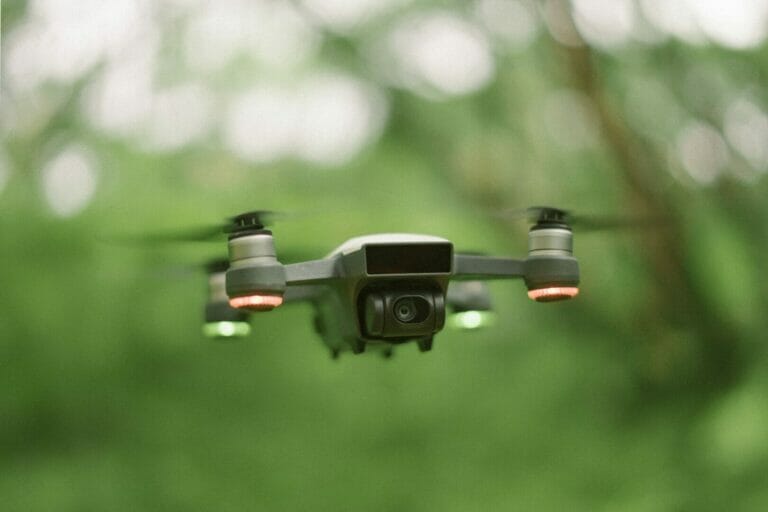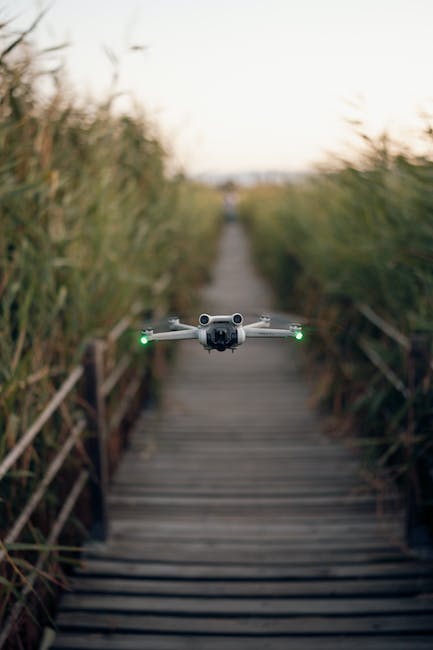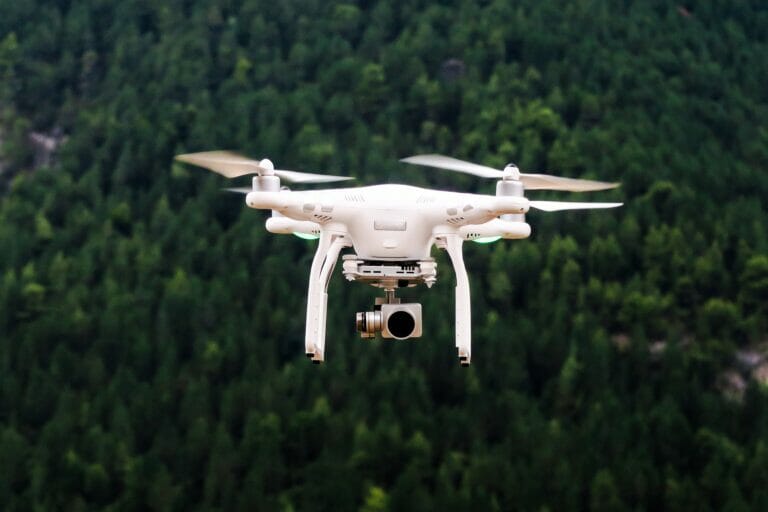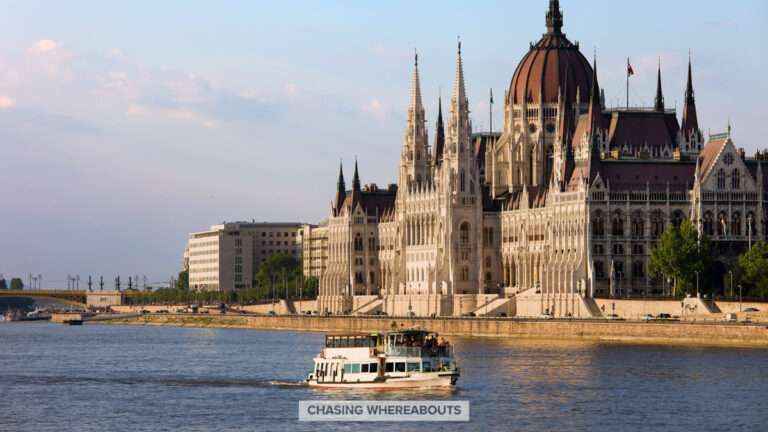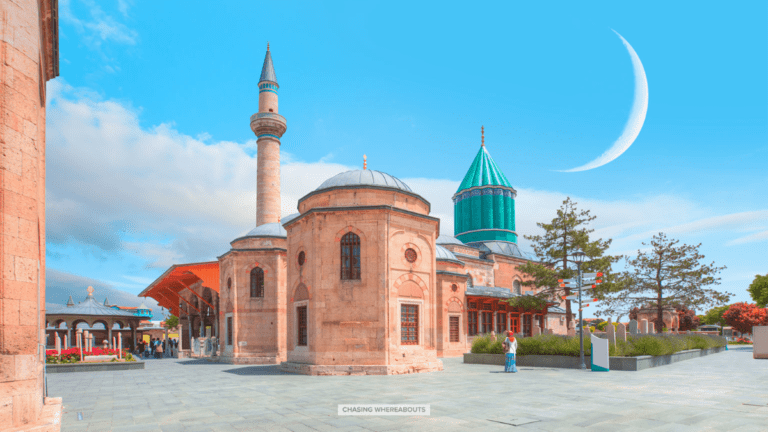Drone Laws in Turkey
In recent years, Turkey has fully and enthusiastically embraced and seamlessly integrated the use of flying drones, which has unquestionably and undeniably revolutionized numerous industries, resulting in a significant and profound enhancement of overall efficiency, productivity, and effectiveness across a wide range of sectors, including but not limited to agriculture, photography, and surveillance.
In this post, we will be exploring in detail the Drone Laws in Turkey so that you know everything before flying a drone in Turkey.
Quick Tip: Discover how to obtain your EU Drone License quickly and effortlessly with Drone Class’s expert guidance. 📜🤝 Say goodbye to the hassles of navigating the bureaucratic maze and say hello to flying high in Spain legally and confidently! 🌄🚀
When did the use of flying drones become popular in Turkey?
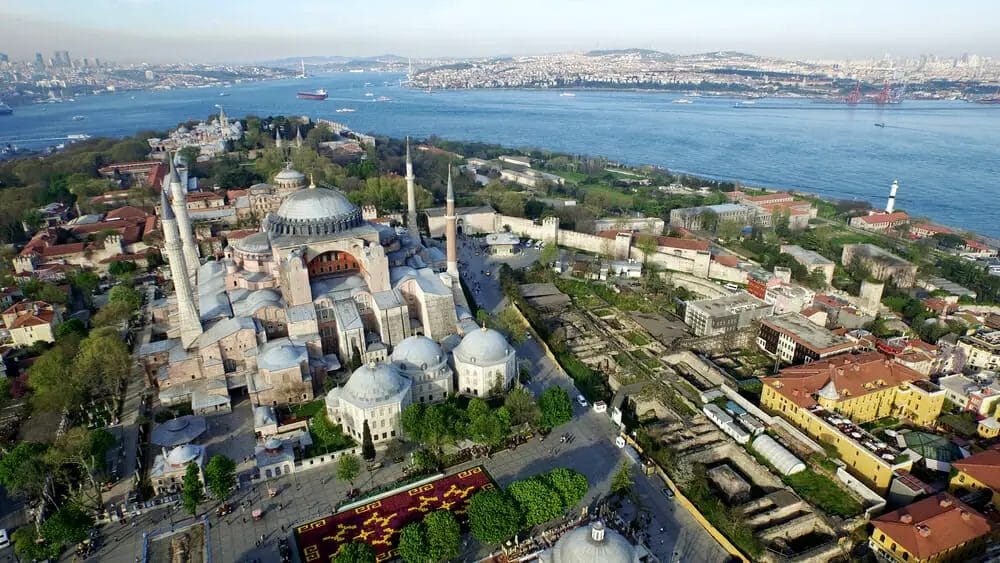
The use of flying drones became popular in Turkey around the early 2010s. Initially, drones were primarily used by hobbyists and enthusiasts for recreational purposes. However, as technology advanced and the potential applications of drones became more apparent, their popularity grew rapidly.
Drones started to gain significant attention in Turkey due to their ability to capture stunning aerial photographs and videos. This attracted photographers, filmmakers, and content creators who saw the potential for unique perspectives and visuals that could be achieved with drone photography. Additionally, the affordability and accessibility of consumer-grade drones made them more widely available to the general public.
As the popularity of drones increased, various industries in Turkey began exploring their potential applications. This led to a surge in professional drone operators offering services such as aerial surveying, mapping, agriculture monitoring, and infrastructure inspection. The versatility of drones made them valuable tools for these industries, leading to further adoption and integration into everyday operations.
What are the regulations and restrictions regarding flying drones in Turkey?
In Turkey, flying drones is regulated by the Directorate General of Civil Aviation (DGCA). The regulations aim to ensure safety and privacy while promoting responsible drone use. Some key regulations include:
Registration:
All drone owners are required to register their devices with DGCA before operating them. Registration involves providing information about the drone’s specifications and the operator’s details.
Flight Restrictions:
There are certain flight restrictions in place to ensure public safety. Drones cannot be flown in overcrowded areas or near airports without obtaining prior permission from relevant authorities. They must also maintain a minimum distance from people, vehicles, buildings, and sensitive areas such as military installations or government buildings.
Weight and Altitude Limits:
There are weight and altitude limits for drone operations in Turkey. Drones weighing more than 500 grams require a remote pilot license, while drones weighing more than 25 kilograms need special permission from DGCA. The maximum altitude allowed for drone flights is 120 meters.
Privacy and Data Protection:
The use of drones for surveillance or capturing images/videos of individuals without their consent is strictly prohibited. Drone operators must respect privacy rights and adhere to data protection laws when operating their devices.
Licensing and Training:
Pilots operating drones weighing more than 500 grams must obtain a remote pilot license from DGCA. To acquire the license, individuals need to complete theoretical and practical training courses provided by authorized institutions.
Are there any specific areas or landmarks where flying drones is prohibited in Turkey?
In Turkey, there are several specific areas and landmarks where flying drones is prohibited due to safety, security, or privacy concerns. Some of these restricted areas include:
Airports:
Drones are not allowed to be flown within a certain distance from airports or heliports without obtaining prior permission from the relevant authorities. This restriction is in place to prevent interference with aircraft operations.
Military Installations:
Flying drones near military installations or sensitive government buildings is strictly prohibited in Turkey. These areas have enhanced security measures and drone activities could pose potential risks or threats.
National Parks and Protected Areas:
To preserve the natural environment and wildlife, flying drones is generally not permitted in national parks and protected areas unless special permission is obtained for research or conservation purposes.
List of some specific restricted areas in Turkey:
- Istanbul Atatürk Airport
- Sabiha Gökçen International Airport
- Presidential Complex in Ankara
- Military zones and bases
- Historical sites and archaeological areas
It is important for drone operators to familiarize themselves with the specific restrictions and obtain necessary permissions before flying their drones in any area to avoid legal consequences or potential hazards.
How has the use of flying drones impacted various industries in Turkey, such as photography or agriculture?
The use of flying drones has had a significant impact on various industries in Turkey, revolutionizing traditional practices and opening up new possibilities. Some key industries that have been positively influenced by drone technology include photography, agriculture, and infrastructure inspection.
Photography and Filmmaking:
Drones have transformed the field of aerial photography and filmmaking in Turkey. With their ability to capture stunning aerial shots from unique perspectives, drones have become essential tools for photographers, filmmakers, and content creators. They offer a cost-effective alternative to manned aircraft or helicopters for capturing breathtaking visuals. Drones equipped with high-resolution cameras allow professionals to capture aerial photographs and videos for promotional purposes, real estate listings, tourism campaigns, events coverage, and more.
Agriculture:
The agricultural sector in Turkey has also benefited greatly from drone technology. Drones equipped with specialized sensors can provide valuable data on crop health, irrigation needs, soil conditions, and pest infestations. This information helps farmers make informed decisions regarding crop management strategies, leading to increased efficiency and reduced costs. Drones enable precision agriculture techniques by providing detailed maps and analysis of agricultural fields.
Infrastructure Inspection:
Infrastructure inspection and maintenance have been made easier and safer with the use of drones. Infrastructure such as bridges, power lines, pipelines, and buildings can be inspected more efficiently and cost-effectively using drones. They eliminate the need for manual inspections that often involve risks to human inspectors. Drones equipped with high-resolution cameras or thermal imaging sensors can capture detailed images and identify potential issues or damages that require attention.
The use of drones in these industries has not only improved productivity and accuracy but also reduced costs and risks associated with traditional methods. It has opened up new opportunities for businesses to leverage drone technology for competitive advantage.
Have there been any incidents or accidents involving flying drones in Turkey? If so, what measures have been taken to prevent them?
Yes, there have been incidents and accidents involving flying drones in Turkey. Some of these incidents include unauthorized flights near airports, privacy violations, collisions with other aircraft or structures, and flyaways (loss of control over a drone). These incidents highlight the importance of responsible drone operation and the need for measures to prevent accidents.
To address these concerns, the Turkish government has implemented various measures to enhance safety and minimize risks associated with drone operations:
Education and Awareness:
The Directorate General of Civil Aviation (DGCA) conducts awareness campaigns to educate drone operators about regulations, safe flying practices, and the potential risks involved. This helps raise awareness among both hobbyists and professional operators regarding their responsibilities when operating drones.
Enforcement:
DGCA collaborates with law enforcement agencies to enforce drone regulations across Turkey. Unauthorized flights or violations are subject to penalties, fines, or legal actions depending on the severity of the offense. Regular monitoring is conducted at airports and other sensitive areas to detect unauthorized drone activities.
Technological Solutions:
Technological advancements have been made to enhance the safety and security of drone operations. Mandatory features such as geofencing, which restricts drones from flying into prohibited areas, are being incorporated into drone software and hardware. This helps prevent accidental flights near airports or other restricted zones.
Remote Identification Systems:
The Turkish government is working on implementing remote identification systems for drones. This will enable authorities to identify and track drones in real-time, ensuring accountability and facilitating quick response in case of any incidents or violations.
These measures aim to create a safer environment for drone operations by promoting responsible behavior, enforcing regulations, and leveraging technology to mitigate risks associated with drone incidents or accidents.
Are there any specific permits or licenses required to operate a drone in Turkey?
Yes, specific permits or licenses are required to operate a drone in Turkey depending on the weight of the device. The regulations differentiate between drones weighing less than 500 grams and those weighing more than 500 grams:
Drones Weighing Less Than 500 Grams:
No permit or license is required for operating drones weighing less than 500 grams. However, operators must still comply with general regulations regarding flight restrictions, privacy protection, and safety guidelines set by the Directorate General of Civil Aviation (DGCA).
Drones Weighing More Than 500 Grams:
Pilots operating drones weighing more than 500 grams are required to obtain a remote pilot license from DGCA along with special registration through the portal which can be done from here.
To acquire the license, individuals must complete theoretical and practical training courses provided by authorized institutions. The training covers topics such as airspace rules, flight planning, emergency procedures, meteorology, and technical knowledge related to drones.
The remote pilot license ensures that operators have the necessary knowledge and skills to operate drones safely and responsibly. It also helps in maintaining a higher level of professionalism among drone operators in Turkey.
Introduction of Regulations and Licensing
Licensing Process for Drone Operators
To address concerns regarding privacy and security, the Turkish government has implemented a licensing process for drone operators. This process ensures that individuals flying drones are knowledgeable about the regulations and safety measures in place. Applicants must pass an exam covering topics such as airspace rules, privacy protection, and emergency procedures. By requiring a license, the government aims to ensure responsible drone usage and reduce potential risks.
Strict Requirements for Commercial Drone Operations
For commercial drone operations, additional requirements have been put in place. Companies or individuals wishing to use drones for business purposes must obtain a separate license specifically for commercial operations. This involves demonstrating proficiency in operating drones safely and adhering to strict guidelines set by the government.
These regulations include maintaining a minimum distance from people, buildings, and sensitive areas, as well as obtaining necessary permissions for certain locations or activities. The introduction of licensing processes not only helps address concerns regarding privacy and security but also provides authorities with better control over drone usage across the country.
Enhanced Monitoring Systems
To further ensure privacy and security related to flying drones, the Turkish government has invested in enhanced monitoring systems.
Surveillance Technology Implementation
Authorities have deployed advanced surveillance technology to monitor drone activities more effectively. This includes utilizing radar systems capable of detecting unauthorized drones entering restricted airspace or flying near sensitive locations. Additionally, high-resolution cameras equipped with facial recognition capabilities are employed to identify operators who violate regulations or engage in suspicious behavior.
Collaboration with Law Enforcement Agencies
The Turkish government has established collaborations with law enforcement agencies to improve monitoring efforts. These agencies work closely with regulatory bodies to enforce drone regulations and respond promptly to any violations or security threats identified through monitoring systems. By coordinating their efforts, they aim to maintain public safety and protect privacy rights.
Furthermore, the government encourages citizens to report any suspicious drone activities through dedicated hotlines or online platforms. This collective effort helps in identifying potential security risks and taking appropriate actions promptly.
Designated Areas for Drone Flying in Turkey
In Turkey, there are several designated areas and parks where people can fly their drones freely without restrictions. These locations provide a safe and controlled environment for drone enthusiasts to enjoy their hobby.
One such area is the Istanbul Model Airplane and Drone Sports Club, located in Istanbul. This club has a dedicated flying field where members can fly their drones without any limitations.
Another popular spot for drone flying is the Göreme National Park in Cappadocia. Known for its unique rock formations and hot air balloon rides, this park also allows visitors to fly their drones. The stunning landscapes provide a picturesque backdrop for capturing aerial footage.
Istanbul Model Airplane and Drone Sports Club
The Istanbul Model Airplane and Drone Sports Club offers a range of facilities for drone enthusiasts. They have designated areas specifically designed for drone flying, ensuring the safety of both pilots and spectators. The club also organizes regular events and competitions, providing opportunities for drone pilots to showcase their skills.
Göreme National Park
Göreme National Park in Cappadocia is not only famous for its historical sites but also attracts drone enthusiasts due to its breathtaking scenery. Visitors are allowed to fly drones within the park’s boundaries, offering an incredible vantage point to capture the otherworldly landscape from above.
Tips for Flying Drones in Designated Areas
- Check if you need any permits or permissions before flying your drone in a designated area.
- Always follow the rules and regulations set by the specific location or club.
- Ensure that you have proper insurance coverage for your drone flights.
- Maintain a safe distance from people, buildings, and wildlife while flying your drone.
- Respect the privacy of others and avoid capturing footage in prohibited areas.
Aerial Photography and Videography
Many hobbyists and enthusiasts in Turkey use flying drones for capturing stunning aerial photographs and videos. Drones equipped with high-resolution cameras allow them to capture unique perspectives and breathtaking views from above.
They can explore various landscapes, including mountains, beaches, forests, and historical landmarks. Aerial photography and videography have become increasingly popular among drone users as it allows them to showcase their creativity and share their work on social media platforms or participate in photography competitions.
Some popular uses of drones for aerial photography and videography include:
- Capturing panoramic shots of cities or natural landscapes
- Documenting events such as weddings, festivals, or sports activities from an aerial perspective
- Creating promotional videos for businesses or real estate properties
- Recording action sports like surfing, skiing, or paragliding from unique angles
Racing and FPV (First Person View) Flying
Another exciting use of drones among hobbyists in Turkey is racing. Drone racing has gained significant popularity as a competitive sport where participants pilot small, agile drones through challenging obstacle courses at high speeds.
Enthusiasts equip their drones with FPV systems that provide a live video feed to goggles worn by the pilot. This gives them a thrilling first-person perspective as if they are sitting inside the drone itself.
Key aspects of drone racing and FPV flying include:
- Building customized racing drones with lightweight frames, powerful motors, and responsive controls
- Practicing flight skills to navigate through intricate courses with sharp turns, loops, and gates
- Competing in local or national drone racing events for fun or prizes
- Participating in online communities and forums to share experiences, tips, and tricks
Environmental Monitoring and Conservation
Drones also play a crucial role in environmental monitoring and conservation efforts among hobbyists and enthusiasts in Turkey. With their ability to access remote or hard-to-reach areas, drones are used for collecting data, conducting surveys, and monitoring wildlife populations.
They provide valuable insights into the health of ecosystems, detect illegal activities such as poaching or deforestation, and aid in the preservation of natural habitats.
Applications of drones in environmental monitoring and conservation:
- Performing aerial surveys to assess the impact of climate change on forests or coastal areas
- Monitoring endangered species’ habitats to ensure their protection and identify potential threats
- Detecting changes in water quality by analyzing drone-captured images of rivers, lakes, or oceans
- Assisting researchers in studying migratory patterns of birds or tracking animal populations
These are just a few examples showcasing the diverse uses of flying drones among hobbyists and enthusiasts in Turkey. The versatile nature of drones continues to inspire creativity and innovation within this community.
Advancements in Drone Technology by Turkish Companies
Turkish Aerospace Industries (TAI)
One notable Turkish company that has made significant advancements in drone technology is Turkish Aerospace Industries (TAI). TAI has developed a range of unmanned aerial vehicles (UAVs) that have gained recognition both domestically and internationally.
One of their most successful drones is the Anka, which is a medium-altitude long-endurance UAV. The Anka provides real-time intelligence, surveillance, and reconnaissance capabilities and has been used by the Turkish Armed Forces for various missions.
Features of the Anka Drone:
- Operational altitude of 30,000 feet
- Endurance of up to 24 hours
- Payload capacity of 200 kg
- Ability to carry various sensors, including electro-optical/infrared systems and synthetic aperture radar
Baykar Defense
Another prominent Turkish company making strides in drone technology is Baykar Defense. They are known for developing the Bayraktar TB2, a tactical armed UAV that has gained international attention for its combat capabilities. The Bayraktar TB2 has been successfully utilized by the Turkish military in operations against terrorist organizations.
Main Features of the Bayraktar TB2:
- Maximum altitude of around 27,000 feet
- Endurance of up to 24 hours
- Ability to carry various munitions, including laser-guided missiles and smart bombs
- Sophisticated avionics system with autonomous flight capability
The advancements made by Turkish companies in drone technology have not only bolstered the country’s defense capabilities but also opened up opportunities for commercial applications.
These innovative drones have the potential to revolutionize sectors such as agriculture, infrastructure inspection, and disaster management. With ongoing research and development efforts, it is expected that Turkish companies will continue to push the boundaries of drone technology and contribute to its global evolution.
Drone Photography and Videography
The tourism industry in Turkey has effectively utilized flying drones for promotional purposes through the use of drone photography and videography. Drones equipped with high-resolution cameras have been employed to capture stunning aerial shots of popular tourist destinations, historical sites, and natural landscapes across the country.
These captivating visuals showcase Turkey’s diverse beauty from a unique perspective, enticing potential visitors to explore its rich cultural heritage and picturesque scenery. The footage captured by drones can be used in various promotional materials such as brochures, websites, social media platforms, and television commercials to attract tourists from around the world.
Virtual Tours
In addition to drone photography and videography, the tourism industry in Turkey has also utilized flying drones to create virtual tours of popular attractions. By equipping drones with 360-degree cameras or utilizing live streaming capabilities, tourists can now experience a virtual visit to iconic landmarks or hidden gems without physically being present.
This innovative approach allows potential visitors to get a taste of what Turkey has to offer from the comfort of their homes. These virtual tours provide an immersive experience that showcases the country’s unique culture, architecture, and natural wonders. They can be accessed through tourism websites or shared on social media platforms as part of promotional campaigns.
Aerial Advertising
The utilization of flying drones for aerial advertising is another way in which the tourism industry in Turkey promotes its destinations. Drones equipped with LED screens or banners can be programmed to fly over crowded areas or popular tourist spots, displaying eye-catching advertisements.
This form of advertising not only grabs attention but also allows for targeted marketing by reaching specific demographics based on location and time. Aerial advertising using drones provides a creative and interactive way to engage with potential tourists while showcasing the beauty and attractions that Turkey has to offer.
Benefits of Drone Usage in Tourism Promotion:
- Enhanced visual content: The use of drones enables the capture of unique and visually striking footage, attracting the attention of potential tourists.
- Cost-effective marketing: Utilizing drones for promotional purposes can be a cost-effective alternative to traditional advertising methods, such as hiring helicopters or using expensive equipment.
- Increased engagement: Virtual tours and aerial advertising using drones offer an interactive and immersive experience, increasing engagement with potential visitors.
- Broader reach: By utilizing social media platforms and online channels, drone-captured content can reach a global audience, expanding the reach of tourism promotions.
Overall, the tourism industry in Turkey has successfully harnessed the capabilities of flying drones to enhance its promotional efforts. Through drone photography and videography, virtual tours, and aerial advertising, Turkey is able to showcase its beauty, culture, and attractions in a captivating and innovative way.
Research Projects
There are several ongoing research projects in Turkey that aim to improve drone technology and its applications. One notable project is the “Development of Autonomous Drone Systems” initiative led by a team of researchers at a prominent university in Istanbul.
This project focuses on developing advanced algorithms and control systems to enhance the autonomy and navigation capabilities of drones. By enabling drones to operate autonomously, they can be utilized in various industries such as agriculture, surveillance, and delivery services more efficiently and effectively. Another research project worth mentioning is the “Drone Swarm Technology” being conducted by a consortium of universities and defense organizations in Turkey.
This initiative aims to explore the potential of using multiple drones operating together as a swarm for various applications, including search and rescue missions, disaster management, and military operations. The project focuses on developing communication protocols, coordination algorithms, and swarm intelligence techniques to enable efficient collaboration among the drones within the swarm.
Weather Conditions
Drone operators in Turkey face several challenges related to weather conditions. Firstly, Turkey experiences diverse weather patterns throughout the year, including strong winds, heavy rain, and snowfall in certain regions. These adverse weather conditions can significantly impact drone operations by affecting flight stability and control.
Strong winds can make it difficult for drones to maintain their position or follow a predetermined flight path, posing a risk of accidents or loss of control. Similarly, heavy rain or snow can damage the drone’s electronic components and compromise its performance.
Moreover, foggy or hazy weather conditions can reduce visibility, making it challenging for drone operators to navigate safely and avoid obstacles. Limited visibility increases the risk of collisions with other aircraft or objects in the airspace. It is crucial for drone operators in Turkey to closely monitor weather forecasts and plan their flights accordingly to ensure safe operations.
Airspace Regulations
Drone operators in Turkey also encounter challenges regarding airspace regulations. The Turkish Directorate General of Civil Aviation (DGCA) has implemented strict rules and regulations to ensure the safe integration of drones into the national airspace system. These regulations aim to prevent unauthorized use of drones and protect public safety.
One key challenge faced by drone operators is obtaining necessary permits and licenses from the DGCA before conducting any commercial drone operations. This process involves submitting detailed flight plans, providing proof of pilot competency, and obtaining liability insurance coverage.
The bureaucratic procedures involved can be time-consuming and require thorough documentation. Additionally, there are specific restrictions on where drones can fly within Turkish airspace due to security concerns. Certain areas such as military installations, government buildings, airports, and crowded public spaces are designated as no-fly zones for drones.
Drone operators must be aware of these restricted areas and obtain special permissions if they need to operate within them for legitimate purposes.
Challenges Faced:
– Adverse weather conditions like strong winds, heavy rain, and foggy weather affect flight stability and visibility. – Limited visibility increases the risk of collisions with other aircraft or objects in the airspace. – Obtaining necessary permits and licenses from the Turkish Directorate General of Civil Aviation (DGCA) can be a bureaucratic and time-consuming process. – Specific restrictions on drone flights exist for security reasons, such as no-fly zones around military installations, government buildings, airports, and crowded public spaces.
Monitoring and Enforcement Mechanisms
Turkish authorities employ various mechanisms to monitor and enforce compliance with drone regulations across the country. One of the key measures is the establishment of a dedicated regulatory body, the Directorate General of Civil Aviation (DGCA), which oversees the implementation of drone regulations. The DGCA collaborates with other relevant agencies such as the Ministry of Transport and Infrastructure, local law enforcement agencies, and aviation authorities to ensure effective monitoring and enforcement.
Registration and Licensing
To enhance compliance, Turkish authorities have implemented a registration and licensing system for drone operators. Individuals or organizations intending to operate drones must register their devices with the DGCA and obtain appropriate licenses based on the intended use. This process helps in identifying authorized operators while facilitating accountability.
Drone Tracking Technologies
In efforts to monitor drone activities, Turkish authorities utilize advanced tracking technologies. These technologies enable real-time tracking of drones through GPS systems or other remote identification methods. By employing such tools, authorities can detect unauthorized flights or identify operators who violate regulations, enhancing overall surveillance capabilities.
Collaboration with Local Authorities
Turkish authorities collaborate closely with local law enforcement agencies to ensure compliance with drone regulations at regional levels. Local police departments receive training on identifying illegal drone activities and are equipped with the necessary resources to handle violations effectively. This collaboration enables swift response times when unauthorized operations are detected.
Awareness Campaigns and Education
To promote compliance among drone operators, Turkish authorities conduct awareness campaigns and educational initiatives. These efforts aim to educate both recreational users and commercial operators about existing regulations, safety guidelines, flight restrictions, and penalties for non-compliance. By fostering a culture of responsible drone usage through education, authorities encourage voluntary adherence to regulations.
- The DGCA conducts workshops and seminars across different regions.
- Online platforms provide comprehensive information on drone regulations and best practices.
- Collaboration with drone manufacturers to include educational materials in product packaging.
Overall, the combination of robust monitoring mechanisms, collaboration with local authorities, and education initiatives helps Turkish authorities ensure compliance with drone regulations throughout the country. These efforts aim to strike a balance between promoting the benefits of drone technology and safeguarding public safety and security.
Conclusion:
Flying drones in Turkey has become immensely popular, opening up a whole new world of possibilities for photography, agriculture, and infrastructure inspection. However, with this popularity comes the need for regulations and restrictions to ensure safety and privacy.
The Turkish government has implemented measures to prevent accidents and incidents involving drones, including education campaigns, enforcement of regulations, and technological solutions. Specific permits or licenses are required for operating drones weighing more than 500 grams.
Overall, the use of flying drones has revolutionized various industries in Turkey and provided breathtaking perspectives of the country from above.
Recommendation – Where to buy Souvenir in Ljubljana Slovenia?

